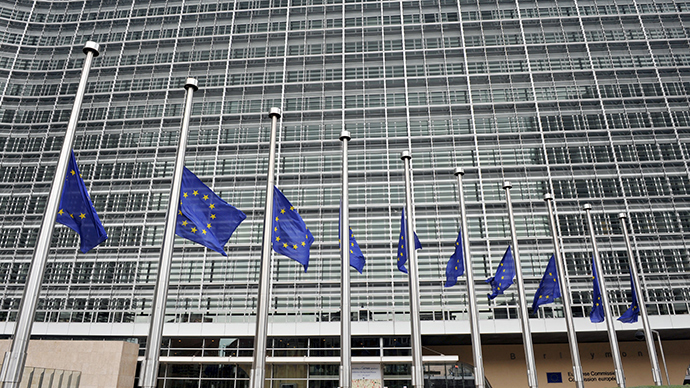The logic of modern diplomacy, aka sanctions 101

When you perceive an external threat, send a clear sign: i.e. withdraw bank accounts and deliver new warships.
Specializing in business, startups and generally encouraging economic growth, perhaps naively, I always thought the essence of diplomacy was to keep talking. Apparently the modern vogue is to get your nation’s side of the story in first and then defend the hype. Thus global geopolitics now resembles the speculative drama which is Jay Z’s and Beyonce’s marriage.
Meanwhile, in a remarkable new development on the world stage which has left even my ‘flabber’ firmly in the ‘gasted’ camp, various European politicians (‘leader’ remains far too grandiose a term) have united for new sanctions. Like many EU deals, this involves the French and Germans doing nothing much other than ululating while the British bear the cost. The straw man hyper-mediocrity masquerading as British Prime Minister David Cameron thus ‘chillaxed’ his way through another month while engineering Britain as the biggest loser.
Ultimately, the end agreement, even by the usually challenging form of labyrinthine multinational compromises by which modern sanctions are born, is, frankly, bizarre.
Or perhaps I am just being cynical.
Britain bears the brunt here by refusing various banking and financial facilities to specific Russian entities and individuals. This seems to run contrary to even my patchy understanding of game theory. If you perceive somebody to be a threat to you, why supply them with bright shiny new French warships? Will a British banker withdrawing a checkbook from an irate oligarch in London instantly placate anybody perceived as prone to aggression?
Perhaps this is why the Nazis failed at the siege of Stalingrad. They cut off gas, water and food from the freezing city. They ought to have just threatened to close a few savings accounts and the besieged Russians would have given up hope immediately...or at least that appears to be EU sanctions ‘logic’ 101. I am not entirely convinced, to put it mildly.
Of course gas is an interesting issue, Chancellor Merkel and friends intend to use rather a lot of it this winter supplied, from...well have a guess! Now if Russia is such a threat, why not just stop buying its gas? Of course that won’t work in the modern Europe, as actually it would hurt Germany’s economy, so hence Merkel gets somebody else to take the pain. In this case, the citizens of Britain. If that’s partnership then perhaps ‘European solidarity’ has been redefined by Brussels (much like bankruptcy)?
Merkel now stands as one with the USA, but they already know that, as apparently Washington reads her email most days before she does. Meanwhile Germany’s industrialists are rather aggrieved that their years of investment in Russia is endangered.
Likewise Sir Anthony Bamford, boss of Britain’s JCB digger firm, despairs that his competitive advantage in Russia is endangered while America has little economic exposure at risk. That could cost jobs which Europe can ill afford to lose. Net, the loss to the EU’s already parlous economy may be 0.3-0.4 percent of GDP, even with France delivering its warships. EU citizens, including the 12 percent of eurozone unemployed may wonder just why their economic prospects are further being hindered in any way, right at the point where the EU is, at best, in stasis, with the eurozone mostly in long-term relative decline.
The EU, an organization whose advocates are invariably on the make, on the take or just dreamily inclined to the romance of supranational bureaucracy, has now found another way to inflict economic suffering on its people without there being any clarity as to just how sanctions will ever deliver a better Ukraine. At the same time, the megaphone is turned to maximum volume as ‘diplomacy’ takes a back seat to justifying whatever action is taken.
That leaves us back in a parallel position to the celebrity stand-off where marital tensions threaten the Jay Z/Beyonce tour. One notable difference: for all their problems, Jay Z and Beyonce are generating a vast economic return.
The statements, views and opinions expressed in this column are solely those of the author and do not necessarily represent those of RT.
The statements, views and opinions expressed in this column are solely those of the author and do not necessarily represent those of RT.












